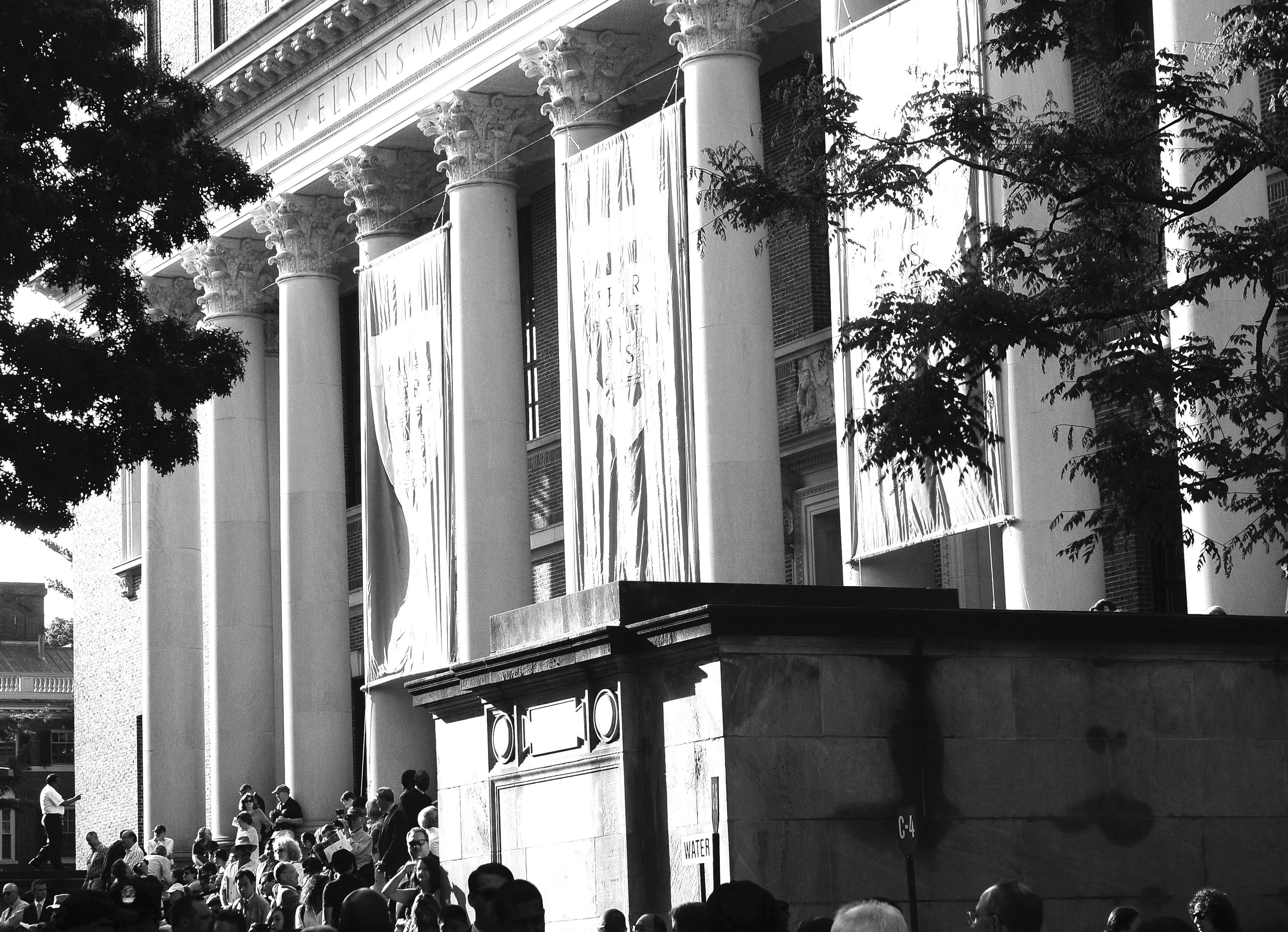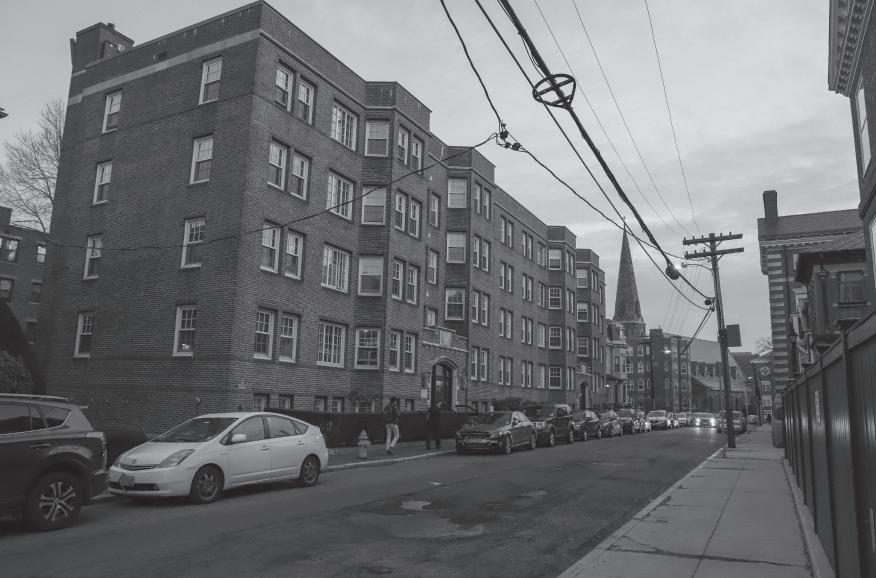
15 minute read
News
Ben Platt Named Hasty Pudding Man of the Year
By AMANDA Y. SU CRIMSON STAFF WRITER
Musician and actor Ben Platt will be the Hasty Pudding Theatricals 2020 Man of the Year, the organization announced Monday.
Platt — the youngest-ever recipient of the Man of the Year award — is best known for his performance in “Dear Evan Hansen,” which won a Tony award for best musical. The cast also earned a Grammy award for best musical theater album, as well as a Daytime Emmy Award for their performance on The Today Show.
Platt’s previous credits include “Pitch Perfect” and “Pitch Perfect 2.” This year’s Hasty Pudding Woman of the Year Elizabeth Banks made her directorial film debut with “Pitch Perfect 2.”
The Hasty Pudding’s producers wrote in a press release that the organization chose Platt for the award because of his “incredible” impact on Broadway and in Hollywood.
Samantha J. Meade ’21 Hasty Pudding Co-Producer
“As our youngest Man of the Year, Ben has had a remarkable career as an actor and musician. We are also avid musical theater fans, so we are very excited for him to watch our production,” co-producer Samantha J. Meade ’21 said.
Platt is currently filming season two of “The Politician,” a Netflix series on which he also serves as an executive producer. He earned a Golden Globe nomination for best lead actor in a comedy for his season one performance.
The Hasty Pudding Theatricals annually presents its Man of the Year Award to performers who have made “lasting and impressive” contributions to entertainment. Since the award was established in 1967, recipients have included Clint Eastwood, Tom Hanks, Robert De Niro, Harrison Ford, Justin Timberlake, Robert Downey Jr., Joseph Gordon-Levitt, and Robin Williams.
The Hasty Pudding will honor Platt at a celebratory roast on Feb. 7 in Farkas Hall, where they will present him with his Pudding Pot. Afterwards, the group will perform “Mean Ghouls,” their second production featuring a co-ed cast in more than 170 years.
amanda.su@thecrimson.com
Parties Dispute Confidentiality in Wrongful Death Suit SUIT FROM PAGE 1
first time, to information concerning mental health issues
Lawyers for Wendell W. Tang
confronted by college students, the availability of mental health services and occurrences of student suicide,” his lawyers wrote.
“No defendant should be allowed to shield itself from future liability of future change by hiding its knowledge of risk behind unilateral confidentiality agreements and by blocking disclosure of information acquired during a lawsuit to that lawsuit,” the plaintiff’s motion added.
“Sunshine is an effective disinfectant,” it read.
Asked for comment, University spokesperson Rachael Dane referred to Harvard’s reply in the case, which argued that Tang’s estate conflated documents filed in court with discovery materials produced by parties in litigation.
In addition to suing the Harvard Corporation — the University’s highest governing body — Wendell Tang brought suit against residential dean Catherine R. Shapiro, Lowell House
Sunshine is an effective disinfectant
Lawyers for Wendell W. Tang
Resident Dean Caitlin Casey, Harvard University Health Services mental health counselor Melanie G. Northrop, and HUHS psychiatrist David W. Abramson, for demonstrating “negligence and carelessness” that ultimately resulted in Luke Tang’s death.
juliet.isselbacher@thecrimson.com amanda.su@thecrimson.com
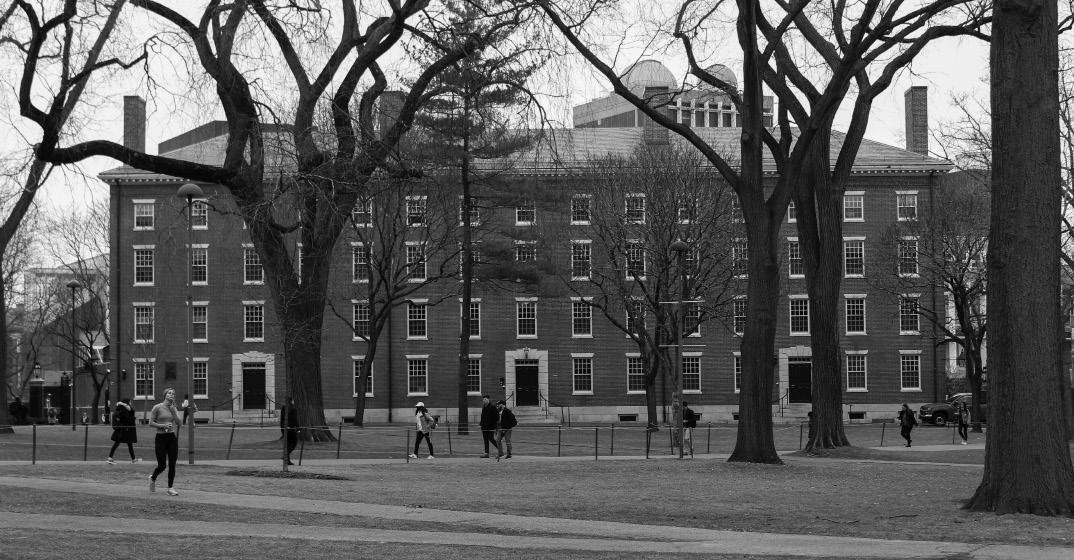
Visitors and students walk along the paths through Harvard Yard Tuesday morning. AIYANA G. WHITE—CRIMSON PHOTOGRAPHER
The sights and sounds of Harvard.

The Crimson @crimson_photo
Q Guide Transitions to New Platform, Online Vendor
The Q Guide, a feedback system for FAS classes, is currently being renovated with new features and a new look. RYAN N. GAJARAWALA—CRIMSON PHOTOGRAPHER
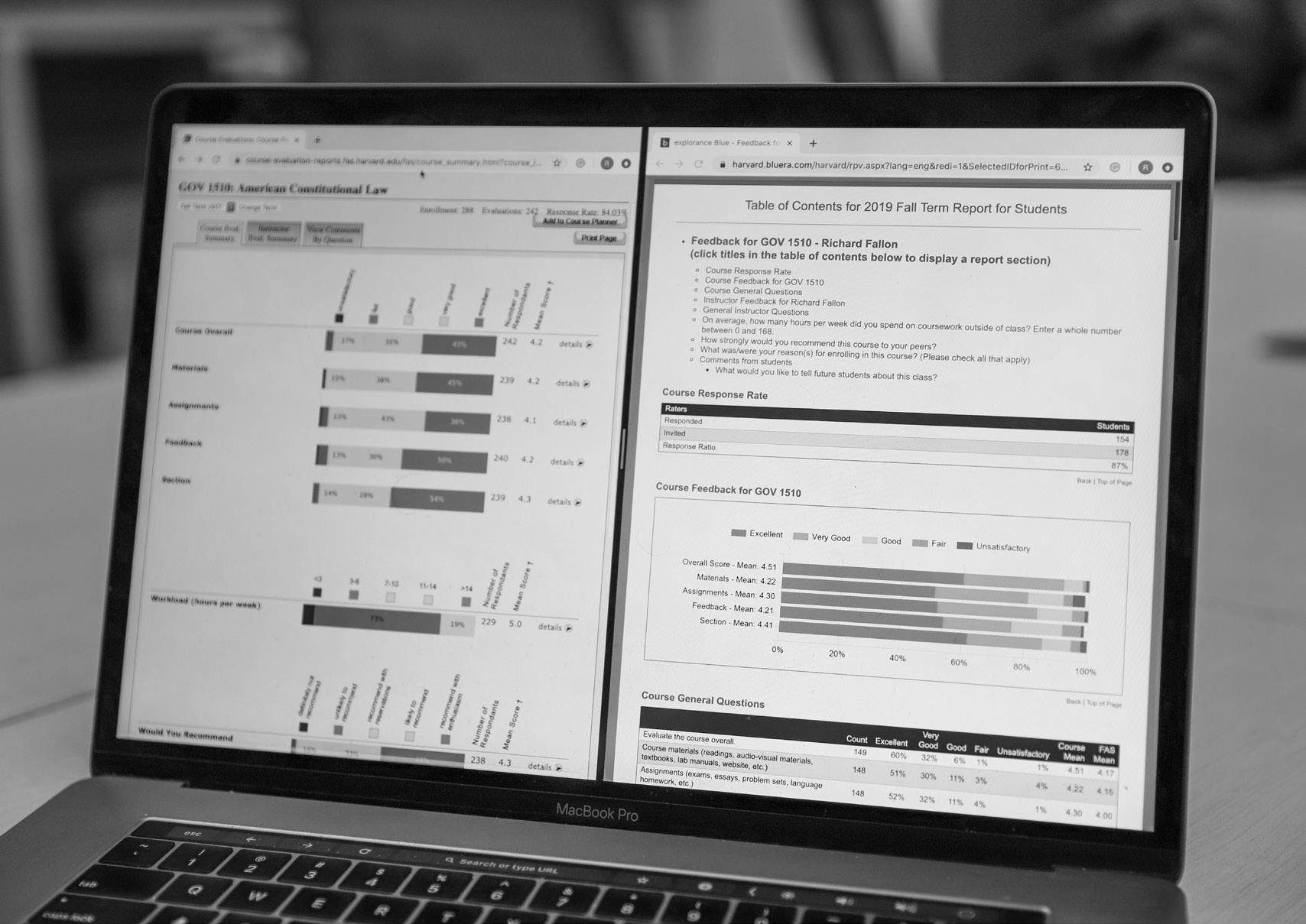
By KEVIN R. CHEN and JULIET E. ISSELBACHER CRIMSON STAFF WRITERS
Harvard’s Office for Undergraduate Education has completed a transition to a new version of its course and instructor evaluation platform, known as the Q Guide.
Harvard began the transition to a new evaluation system by undertaking a “discovery phase” during the 2016-2017 academic year, according to College spokesperson Rachael Dane. During this phase, Harvard decided to move to a vendor solution rather than continue with the “home-grown” system it developed for itself.
The Faculty of Arts and Sciences selected the vendor Explorance for the new evaluation system. FAS ran a pilot of 17 courses on the new site in the spring of 2019 and transitioned all courses over to the new evaluation platform in the fall of 2019.
The University’s Office of Institutional Research, which administers course evaluations for FAS, provided the business requirements for the new site, while Harvard University In
Amanda J. Claybaugh Dean of Undergraduate Education
formation Technology handled the technical aspects of developing the site. All questions that are currently available on the Q Guide will also be available on the new site, for the time being. In the fall of 2019, Dean of Undergraduate Education Amanda J. Claybaugh wrote in an email to College affiliates that her office would be reviewing the questions asked on the Q Guide.
“We’re eager to hear what you think about these issues,” she wrote in her message.
The new site will not feature information on course affordability, which was removed from the Q Guide after the fall of 2017. The Committee on Undergraduate Education introduced two new Q Guide questions on the amount of money students spent on course materials in the spring of 2017.
The changes came after students criticized Economics professor N. Gregory Mankiw for requiring the purchase of a $132 textbook with a required online access code. The Undergraduate Council subsequently lobbied for transparent information on affordability.
Meanwhile, in October, Harvard Law School student government representatives began working with administrators to change Law School course evaluations to mirror the system employed in FAS’s Q Guide.
kevin.chen@thecrimson.com juliet.isselbacher@thecrimson.com
Historical Apthorp House to See Delay in Renewal APTHORP FROM PAGE 1
the ceiling falls in,” Palfrey said. “Now we’re renovating it in a way that won’t allow the building to fall apart for at least the next 100 years.”
The refurbishment of Adams House is the latest development in the over $1 billion House Renewal Initiative. The Adams House renewal project is projected to occur in three phases spanning across four years, with completion scheduled for fall 2023.
Merle A. Bicknell, the assistant dean for the Faculty of Arts and Sciences’s Office of Physical Resources and Planning, wrote in an email that the plans for the Apthorp renewal were “considered in full light” of its age and history. The last time the building was renovated was in 1930. The renovated building will retain all of the original wooden structures within the building, though some heavy beams will be reinforced with steel to prevent changes in the wood that could “jeopardize the health of the structure” over time, according to Bicknell. She added that these strategies for renewals are meant to comply with Cambridge Historical Commission guidelines.
“The work planned for Apthorp is intended to steward it well into the twenty-first century, while remaining sympa
The work planned for Apthorp is intended to steward it well into the twenty-first century, while remaining sympathetic to the original design and historic building technologies.
Merle A. Bicknell Assistant Dean, Office of Physical Resources and Planning
thetic to the original design and historic building technologies employed in its construction,” she wrote.
Historical Commission Executive Director Charles M. Sullivan said in an interview that the Commission was heavily involved in the planning of Apthorp’s renewal, given that the building falls within the Harvard Square Conservation District. He agreed with Bicknell’s assessment that the interior will “substantially” retain its original structures. He did acknowledge that, due to the age of the building, unforeseen issues may arise, and said members of the commission will be present to supervise the initial construction work.
“For a renovation project for a structure that old, there’s often pretty clear possibility that there could be that kind of replacement necessary,” he said. Bicknell wrote that the renewal planning takes the unexpected into account when dealing with Apthorp House.
“House Renewal work is always surgical, but at Apthorp it will be even more so, and due to the home’s age and evolution, we expect to learn new things about the house as various layers are revealed during construction,” she wrote.
sydnie.cobb@thecrimson.com declan.knieriem@thecrimson.com
DIVESTMENT FROM PAGE 1
Faculty Urge Corporation to Divest at February Meeting
provide University financial managers with “support and encouragement” to divest. “We hope that Harvard will be a leader and not a laggard in decarbonizing its investments,” Engell said. After the vote, University President Lawrence S. Bacow said that he would bring the motion to the Harvard Corporation for consideration.
“I am confident that the Corporation will give it the thought and consideration it deserves,” Bacow said.
Bacow asked faculty members for their “patience” and added that he will inform the faculty of the Corporation’s response later this semester.
“Just as it took the faculty time and thought to get to this position, the Corporation will also take time to get to its response,” Bacow said.
A group of professors known as Harvard Faculty for Divestment has been calling for divestment for more than five years.
In 2014, the group wrote an open letter to former University President Drew G. Faust and members of the Harvard Corporation urging fossil fuel divestment. More than 500 faculty have signed onto a letter posted to the group’s website asking the same of Bacow.
Bacow has maintained that the University’s endowment should not be used as a tool to enact social change, as have several of his presidential predecessors.
Instead, he has said the University must work with industry players to address climate change, among other arguments.
Lawrence S. Bacow University President
At Tuesday’s meeting, Economics professor Stephen A. Marglin ’59 likened the Corporation’s refusal to divest from fossil fuels to its prior refusal to divest from companies conducting business with the apartheid government in South Africa.
“The question before us today is whether this faculty supports divestment and decarbonization now, when we can possibly influence others to follow our lead, or we wait, as we did in the case of South Africa, until nobody cares,” Marglin said. “We are voting on divestment and decarbonization, but we are also voting on the honor of this university.”
Only one professor — Government professor Dustin Tingley — spoke against the motion at Tuesday’s meeting.
Tingley said that, though he studies climate issues in his research, he believes that the motion would have a “symbolic impact” that is “hard to direct, contain, and control,” rather than a direct impact.
“Today, I will vote no to divestment, but yes to investment in the research, teaching, and learning around climate change,” he said.
“Yes to investment by Harvard in this vital space that has clearly struck a nerve among our students, staff, and faculty.”
james.bikales@thecrimson.com kevin.chen@thecrimson.com
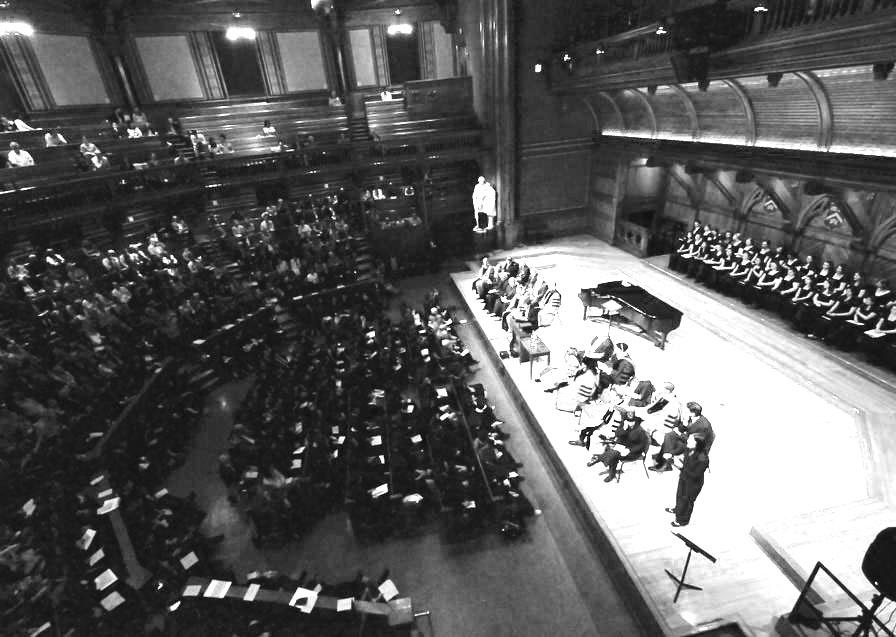
Proud to cover Harvard for 143 years and counting.
The Crimson thecrimson.com
IOP Director’s Internship Adds New Host Programs
By SIXIAO YU CRIMSON STAFF WRITER
This summer, the Director’s Internship program at Harvard’s Institute of Politics will offer funded summer internship opportunities at 145 host organizations, as well as a new program aimed at students interested in pursuing public service in their hometowns.
This year’s slate of internships — which include new offerings such as programs at the World Bank and the advocacy organization Time’s Up — come with at least a $5,000 stipend for participants, who must go through a competitive application process.
In 2019, the IOP offered summer jobs with 125 organizations through the Director’s Internship, up from 100 the year before.
The IOP is also debuting a new “hometown” internship, which funds independent internships in local government or with local non-profits.
“We recognize that public service and really good work is going on around the country, not just in Washington or New York,” IOP Director Mark D. Gearan ’78 said.
Samantha J. Frenkel-Popell ’21, chair of internships and career services at the IOP, called the hometown program an “amazing opportunity” for students to find a summer activity that “matters to them.”
Included in the new group of programs are a host of internships related to the 2020 election cycle, including opportunities with the Democratic and Republican National Committee Conventions.
Gearan said his public service experience as an undergraduate helped him understand the importance of facilitating such work for current students.
“When I was an undergraduate here, I received a summer stipend, and that really allowed for me to go to Washington — I was a financial aid student — and allowed me to work for my congressman,” Gearan said. “And it really exposed me to policy and politics and communications and really shaped some of my career direction.” “So I come to this with a personal appreciation for it,” he added.
In addition to the Director’s Internship Program, the IOP offers other summer opportunities such as the Summer Stipend Program, which funds independent public service internships, and the Summer in Washington Program, which organizes public-service focused events in Washington D.C. for Harvard undergraduates.
Gearan also pointed to University President Lawrence S. Bacow’s call for Harvard graduates to pursue public service in his inauguration address as motivation for expanding such opportunities for students.
He said he hopes students share the lessons they learn during the Director’s Internship program with peers when they return to campus in the fall.
“Other students who might have not had that summer experience can also be informed and perhaps even inspired by the work when they hear about one of our interns working in the mayor’s office or for a non-profit,” Gearan said.
sixiao.yu@thecrimson.com
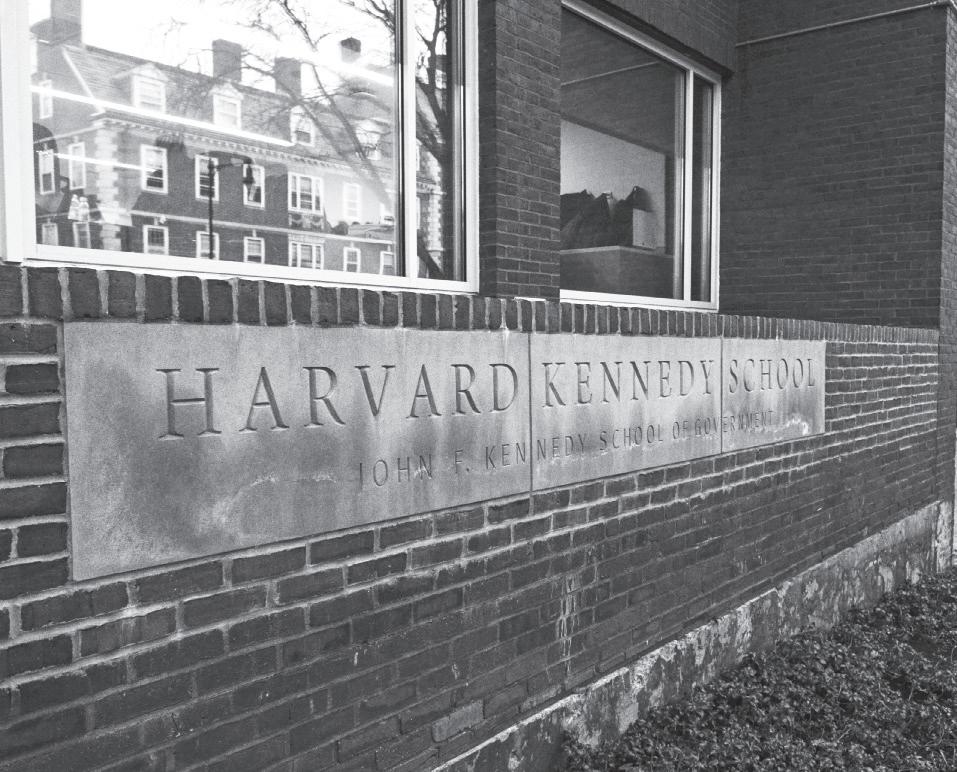
The Institute of Politics at the Harvard Kennedy School is the host of several Director’s Internships, which provide students with opportunities to explore politics and public service. STEVE S. LI—CRIMSON PHOTOGRAPHER
HUPD FROM PAGE 1 TOWN GOWN FROM PAGE 1 HUPD to Review Following Report Harvard Presents Town Gown Report concerns and suggestions.
“I urge all of you to share your thoughts and ideas for how we can, working together, strengthen and maintain the high standards of professionalism and the delivery of high-quality service the students, faculty, staff and visitors to this University expect and deserve,” he wrote to employees.
At the same time, the chief cited efforts he has implemented to improve the department since arriving at Harvard 24 years ago.
These initiatives included strengthening relationships between HUPD officers and University affiliates, recruiting a more diverse police force, and providing diversity training to officers.
“In the last five years, HUPD staff have received approximately 3,400 hours of diversity, inclusion, and belonging related training,” Riley wrote in his email.
Riley also wrote in his Tuesday statement that the department has put in place standard procedures for promotions and discipline.
The chief said in his email that Harvard police officers play a vital role on campus and that University affiliates must trust the department to keep them safe.
“I do want to emphasize the pride I have in this Department,” Riley wrote. “The critical role we have in Harvard University’s mission is not small, and the impact of our work is felt and relied upon by every member of this community.”
“It should go without saying, if any member of our community can’t have confidence in our commitment to their safety and wellbeing, we are failing,” he added.
HUPD spokesperson Steven G. Catalano did not immediately respond to a request for comment Tuesday night. House.
Offiong emphasized Harvard’s goal of fostering inclusivity in Cambridge and advancing its own research and scholarship through its projects.
“Any changes we make to the campus have to align with our campus planning principles,” she said. “We want to be a good neighbor.”
Harvard Chief Sustainability Officer Heather A. Henriksen continued the presentation by outlining the University’s dedication to a “healthier, resilient, fossil fuel-free future.” She said Harvard has set climate goals to be “fossil fuel neutral” by 2026 and “fossil fuel free” by 2050.
Thomas J. Lucey, who serves as director of government and community relations at Harvard, concluded with an update on the University’s engagements with Cambridge public schools.
Harvard currently offers educational programs for elementary school students as well as summer programs for high school students, including the Harvard Crimson Summer Academy and the Cambridge Harvard Summer Academy, according to Harvard’s presentation.
“The takeaway I’d like you to have is that we’re in every Cambridge public school,” Lucey said. “So as the student makes his way from grade to grade to grade to grade eventually through high school, he or she will be touched by a Harvard program multiple times in that process.” During the question and answer session, planning board member Louis J. Bacci Jr. said the universities could do a better job advertising their school programs to reach a more diverse demographic.
“I talked to a lot of people who know very little of the programs that are available in the city,” he said. “Sometimes the claims are that these are very cliquey and people associated with the universities know about these more than the intended communities.”
Planning board member Corinne Espinoza said Cambridge area universities should work together and build off of each others’ programs to offer services to city residents.
“What if Lesley, Harvard, and MIT all allowed Cambridge residents to board your shuttles for free?” she asked. “What would that mean for our community?”
Espinoza ended the night by reminding Harvard, MIT and Lesley to consider if their institutional values matched Cambridge’s values as a “sanctuary city” that prioritizes equity and justice.
She encouraged each university to consider renaming streets and buildings named after slave owners and requested that each university share how much they have invested in the prison and fossil fuel industries. “I want to encourage you to let us know either how you are looking at those topics or whether you have plans to look at those topics,” Espinoza said. ema.schumer@thecrimson.com charles.xu@thecrimson.com Sometimes the claims are that these are very cliquey and people associated with the universities know about these more than the intended communities. Louis J. Bacci Jr. Cambridge Planning Board Member As the student makes his way from grade to grade to grade to grade eventually through high school, he or she will be touched by a Harvard program multiple times in that process. Thomas J. Lucey Harvard Director of Government and Community Relations
